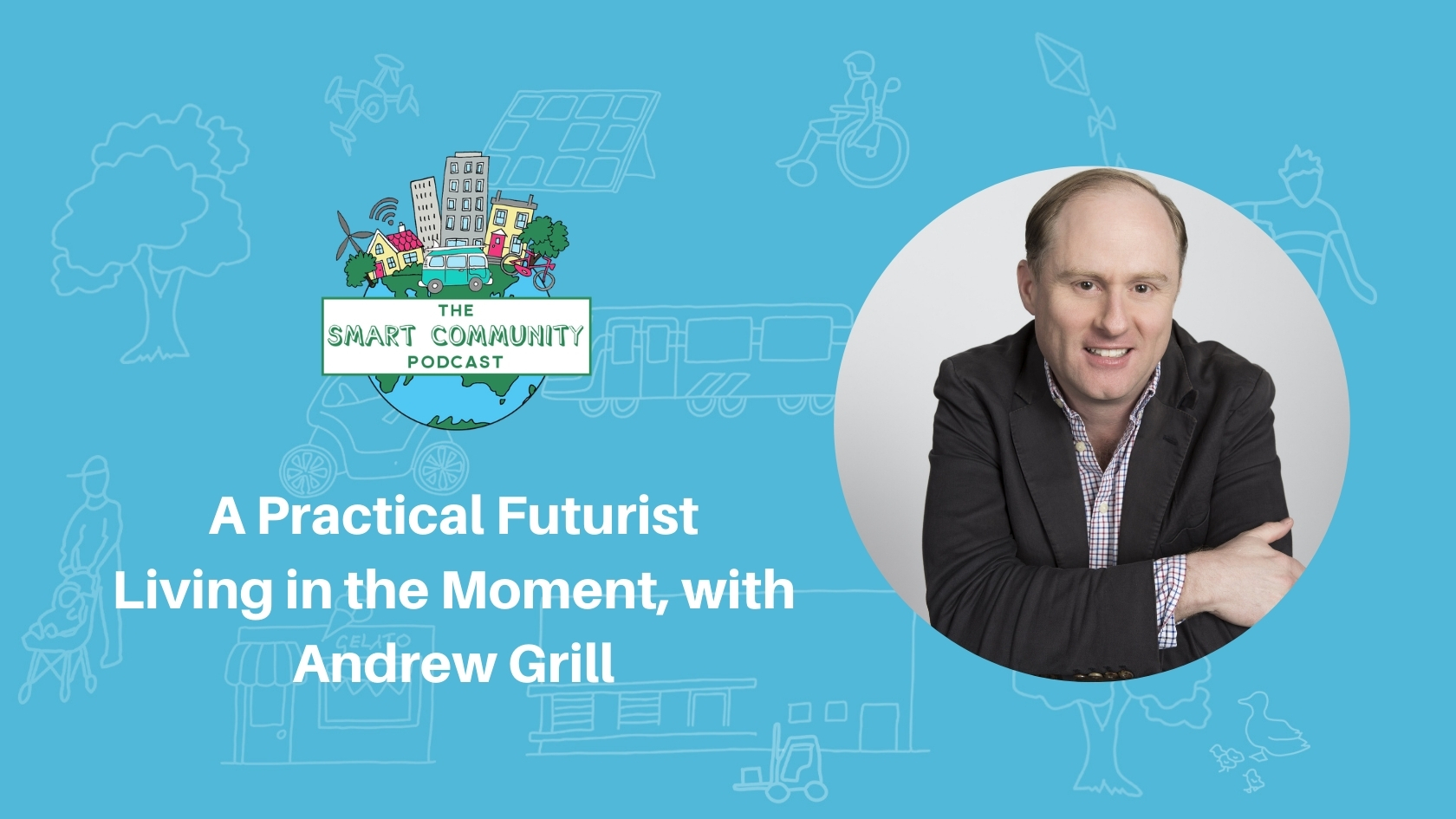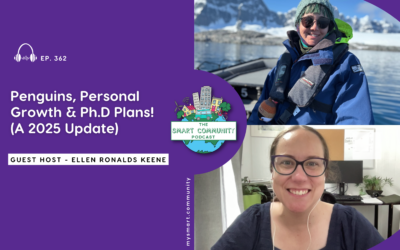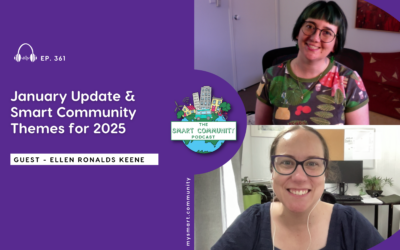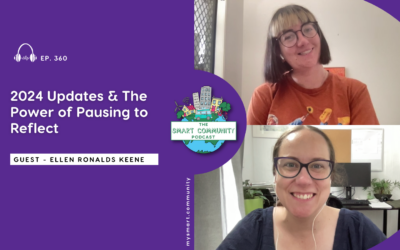In this episode of the Smart Community podcast, I have a great conversation with Practical Futurist, Andrew Grill, who you may remember from Episodes 38 and 136. This podcast episode is another audio from the YouTube series I’ve been doing catching up with previous podcast guests during the pandemic.
In this chat, Andrew and I discuss how the pandemic has not only brought in a whole lot of new rules and social norms, but it’s also accelerated his futurist predictions. Things that he was predicting to change such as in the future of work, have come to pass incredibly quickly. Andrew tells us how the disruption is a huge opportunity for change but is also exposing the weak points in every ecosystem, and increasing the digital divide. We talk about that digital divide particularly in the education space, where already disadvantaged students are being further disadvantaged, and teachers who were already comfortable with technology are more advantaged and able to be more effective than their colleagues.
Andrew also tells us what has and hasn’t changed for him, including the information he is learning and sharing, the types of work he does, and the mode of delivery and tools for engagement in his work. We talk about the pros and cons of working from home, the mental health impacts and what managers are learning now that they’re in it with their employees, plus using business tools like Zoom for personal social connections and the need for digital hygiene due to the digital fatigue we’re all feeling. Andrew then shares his predictions on the future of work, including the emergence of a third work space that is neither home nor office, and the increase of professional gig workers. We finish our chat with Andrew’s three practical tips for coping while working from home and potentially physically isolated.
As always we hope you enjoyed listening to this episode as much as we enjoyed making it!
Listen here:
What we cover in this episode:
- How Andrew is coping in lockdown and how humans globally are adapting to new rules and social norms
- The ways disruption is a huge opportunity for change and how the pandemic is exposing all the weak points in our systems
- The digital divide that is also being exposed and accelerated during the pandemic
- How education is being disrupted and the way the digital divide is further disadvantaging some students
- The opportunities and challenges for education right now, including for altered delivery styles, and how this is easier to adapt to for teachers who were already confident with technology
- What has and hasn’t changed for Andrew, including pivoting his work to digital delivery
- The things Andrew is learning about and the information he’s sharing with friends and colleagues
- The new etiquette and skills required to work from home and engage online in new ways
- The pros and cons of working from home, and what managers are learning now that they’re in the same boat as their employees
- The emergence of business tools like Zoom being used for personal social connections
- Mental health challenges emerging for people who are isolated and unused to working from home
- Digital fatigue, the need for digital hygiene/detoxes and the power of the humble walk outside
- Andrew’s predictions on the future of work, including the emergence of a third work space that is neither home nor office, and the increase of professional gig workers
- Three practical tips for coping while working from home and isolated
Quotes:
“People asked me as a futurist, what can we expect in the future? What I say is that disruption is a huge opportunity for change…What I think is happening is all the things that I have predicted is going to happen in years will now happen in months. Things are accelerated, because the weak points of failure in every ecosystem, every supply chain are now being laid bare.”
“As a technologist, it’s fascinating to see people learn and adapt to new technologies almost overnight.”
“I’m a technologist and I like playing with this bit of kit. But I found it quite easy to leverage what I would use in a conference room in terms of my audio and video equipment, and plug that straight into Zoom.”
“The content is still relevant and what hasn’t changed is my appetite to learn about everything that’s going on…I’m fascinated that we’re now stress testing some of these ecosystems like never before—and you never have a chance to do that [otherwise]—and looking at how companies respond. I suppose the hunger for information hasn’t changed. The hunger for human interaction hasn’t changed as well.”
“What COVID-19 has taught us is this need for third space. It means that the reliance on structured, sit-down office environment may be relaxed. But it means that space doesn’t go to waste because it will be repurposed. And I think we’ll see some repurposing of existing floor plates into dynamic spaces.”
“Work aside, digital aside, we’re all humans. We all want to have a relaxing time through all this and make some good of it. So reach out to someone you haven’t spoken to in a year, and give them a call, send them a message, jump on a Zoom call. I think that’s one thing that we can do to get through all this.”
“It’s funny, because I’m a futurist, everyone said, ‘So Andrew, you’re going to predict what’s going to happen.’ No, not. I’m in the same boat. I’m watching this very carefully. I’m testing some of my hypotheses that I thought would happen in three to five years, then they are going to happen in three to five months. And so I’m watching all these things happening in real time very, very closely.”
Links:
Andrew’s The Practical Futurist Podcast
Connect:
Find the full show notes at: www.mysmart.community
Connect with Andrew at Andrew.London or on Twitter @andrewgrill
Connect with me via email: hello@mysmart.community
Connect with My Smart Community via LinkedIn or Twitter and watch on YouTube
The Smart Community Podcast is produced by Perk Digital.






0 Comments